Head of the city's military administration, Vitalii Barabash: "Illegal taxi drivers return people to Avdiivka for 18,000 hryvnias. We are taking them out again in armored capsules"
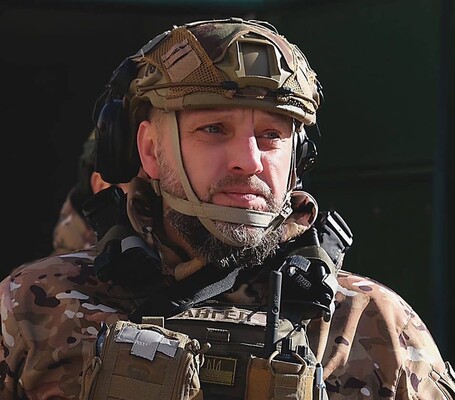
Avdiivka is a front-line city that has been holding back the enemy since 2014. Since then, local elections have never been held in the community, a military-civilian administration was created, and from the spring of 2022, a military one. The situation in the city, which has been under siege and captured for the past year, is being watched not only by local residents, but also by the entire country.
The head of the military administration, Vitalii Barabash, does not leave the community despite warnings and daily massive strikes and artillery shelling. About 1,700 residents still remain in the city, and probably among them is one child, who has been wanted for the last four months for forced evacuation despite the mother's refusal.
How does the local government work and how do those who remain live? Why do people not move out of shelling and what to do about it? What will the winter of 2023 be like for Avdiivka? How and where do those who left survive? How do you communicate with the head of the community? The CHESNO Movement spoke about these and other issues with the head of the military administration within the framework of a special project with ZN.UA.
— Mr. Vitalii, what was the most difficult thing at the beginning of a full-scale invasion?
— From March 2022, a military administration was established in the city. The most difficult are the first few weeks, when there was no understanding of what was happening. They attacked everywhere: on Kyiv, on the southern regions, from the north. Somewhere the situation was critical, but practically nothing changed in us. The city began to be shelled a little by enemy artillery, but the front line was stable.
Then came the order to evacuate all city leaders. We are probably the only community whose leadership has not left the city for a single day, which was agreed with the regional military administration and the commander of the Joint Forces Operation. We saw the front and the forces from that side: the situation was under control and no one was going to engage in street fighting. Therefore, there was a feeling that it was necessary to stay in place. I consider this decision correct.
It was also difficult when they began to evacuate civilians. How to explain to them why they have to go? This remains a key problem today. I was sincerely happy when we took out up to half a thousand people in a day. The city was under massive shelling. They did not put the buses in one column, they sent them in parts. Each such flight was stressful until you received the information that all the buses had successfully reached their destination.
At first, I and my deputies lived in the military administration building until a direct hit occurred. Thoughts in the first seconds were only about whether everyone is alive and the realization that it is necessary to disperse.
Another challenge is winter. We understood that even with stoves, coal and firewood, there would be people in the city who would freeze or die from carbon monoxide poisoning. And such cases really happened - not one dozen, not two and not even three...
Now we are preparing for another conventional heating season under such circumstances, realizing that everything is repeating itself and there are still people in the city. On the one hand, it will be easier, because we have already been through it and have the skills to survive under such conditions, and on the other hand, there will be more shelling, the houses will not withstand and everything is cracking at the seams and leaking. Therefore, it will be even more difficult, unfortunately.
— Were you preparing for an invasion?
— Yes, we were preparing. We have worked out several scenarios, depending on the development of events. This was done in cooperation with the region and the central government. Few people believed in the version that was implemented, but... We have communication with everyone from the first day. A lot of help came from the Office of the President and representatives of the Regional Military Administration. It is worth to mention that this vertical has always worked very well for us.
— How many residents are currently left in the city?
— Until 2014, about 40,000 actually lived there. The city of Avdiivka is an area where many residential complexes of Donetsk are located, because it was possible to get to its center from us faster than to residents of the outskirts of the city. When the war of 2014 began, during the active phase, about three thousand people remained in the city, most of them employees of the Avdiivka Coke and Chemical Plant (AKHZ). Then people began to return, before the start of a full-scale invasion, the city had a population of about 26,000. Today, 1,691 people still live in the city of Avdiivka. In percentage terms, this is a small number, but in absolute terms, it is almost 1,700 inhabitants.
— Who are these people who are left to live in danger? And why?
— Despite everything, it is difficult for elderly people to make a decision and leave their home. Most people are of retirement age, although there are also young people under 30 years old. Now, of course, they do not say that there is nowhere to go or that there is a lack of funds, as at the beginning. Now, especially young people, they say: "Why should we go somewhere? Yes, there is risk to life 24/7. Yes, we live in basements. But we don't need to spend money on anything." They constantly receive humanitarian aid, not only food, but also personal hygiene products and medicines. They have everything, there are no problems, as they claim. They don't want to go somewhere to rent an apartment, because there is no free one around here, to spend money, to look for a job.
Many of our townspeople are concentrated in the city of Kamianske, Dnipropetrovsk region. There is the "Yuzhkoks" plant there, it is like a smaller copy of our Avdiivka Coke and Chemical Plant (AKHZ). And the management of the "Yuzhkoks" hoped that now a queue of people willing to work would line up for them, because many qualified workers had moved. But it did not happen as expected. People do not leave, because the salary was 30-35 thousand hryvnias, and at this plant they offer 16 thousand. They believe that it is better to sit at home and do nothing than to work for less money. Unfortunately, this is true.
In recent weeks, there has been a new explanation for the refusal to evacuate. We have two points where there are "Starlinks" and TVs, where you can watch Ukrainian news. People listen to reports about the successes of the Armed Forces of Ukraine in counteroffensive actions: although they are not so active, they are taking place, so they have no reason to leave, they say. They expect that the front line will be moved further. But we must understand that they read a lot of propaganda information coming from the enemy. Information is being spread there that the main military operations of the Armed Forces of Ukraine will fall on Donetsk, and the residents are waiting for this event.
— And who organized the installation of those "Starlinks" and televisions? Is it for public use and information? Is it "Points of Invincibility"?
— We have an entrepreneur who is still working, and one TV is in his shop. We helped him find "Starlink", he bought it, and now he has a constant stream of news.
There are certain requirements for the "Point of Invincibility", which is why we operate a volunteer point where, in addition to "Starlink" and a TV, there are also washing machines, showers, a hairdresser, and we distribute food and medicine. There are two halls with TVs, you can charge your phone, tea, coffee, canapés, hot meals are organized for the elderly, so they come and watch the news there.
Since April of last year, we have had no electricity, and therefore no television. All radio content comes from the occupied territories, so our channels are not getting through, a very powerful station is in Donetsk, and we could not do anything about it even until February 24.
— Do you have everything running thanks to generators? Were they bought with budget funds or were they bought by volunteers?
— Yes, all electronic devices work thanks to generators. There are several points around the city where you can use them, the volunteer point is not the only one for such needs.
The president's office, representatives of the regional military administration and international missions helped us to purchase generators, and there are no problems with this. When the dam in the Kherson region was blown up, we thought that aid would be suspended, but that did not happen. We even have a reserve of everything necessary for two months just in case, and we constantly update it.
The most difficult thing is to organize logistics. There is a 22-kilometer stretch of road that is constantly under fire. International organizations bring us everything to safer communities, there are our warehouses, and then we ourselves transport it in small buses to the city.
— Given that people have been consuming content from the occupied territories for a long time, and now the concentration of news from there is even greater, what is their attitude?
— I thought that they would be pro-Russian, but now I see something that was not there before the full-scale invasion: almost everyone is greeting "Glory to Ukraine!". But there are different people. A blogger was here recently, who recorded a video with the locals, and we stood nearby and watched. At the end, she threw a line that "history will put everything in its place." I asked her to explain what that meant, and she told me not to be such a nationalist.
It is unfortunate that people make efforts and risk their lives every day to bring help, because we saw that woman the day before at the volunteer station with a canapé in her hands. If such people had not gone to referendums in 2014, then such history as is happening now would not have happened.
— The whole country is worried, was it still possible to forcibly evacuate that boy, who was hidden by his relatives for a very long time? And do parents return to the city with their children, who were taken away earlier?
— During all the time, there have never been "green corridors" that would have been agreed upon by both parties. We must evacuate in an "armored capsule", which is a maximum of five or six people. These are collector minibuses, they are partially armored, because the one we drive around the city is completely shot through as a result of the bullets from the shelling.
Unfortunately, we do not have specialized well-armored transport, although there is a great need for it under the current circumstances - not only for our safety, but also for evacuation, police work. Our volunteers deliver products and other assistance only on such cars. We can't buy them or even repair them with budget funds, everything is with volunteer money.
If people agree to evacuate, they are picked up, put on additional bulletproof vests, helmets and try to drive to a safe zone in the short intervals between shelling. Each evacuation is a special life-saving operation. It is conducted by the police, local authorities and again volunteers, the military is not involved. During the air alert in Donetsk, we never transport people, because the 99.9% probability that a rocket will fly to Avdiivka is already like a dogma.
As for that boy, they still haven't found him – and they've been looking for him for more than four months. There was various information, as if they had already left, but it was not confirmed. Then they said that the child was taken away by unknown relatives in an unknown region. On the territory of Ukraine, the mother is not registered as an internally displaced person – we constantly keep this under control. Her phone has been silent for a long time, she does not come for humanitarian aid, she is not paid for it either, and she has not even been seen in the city for a long time. The police set up ambushes and patrolled and watched the family, but the boy and his mother were nowhere to be found. Searches were conducted. With whom and where the child was then for such a long time is unknown.
There is a version that they could have died in the old part of the city, where the private sector is close to the front line and there is constant artillery shelling, we physically cannot search all five thousand households. We hope they are alive.
There were rare cases when evacuated people returned. Three families recently returned literally the next day after being evacuated. As soon as we receive a signal, we go with the police to check, sometimes we search for several days and take them out again. Now all possible options for getting in have been blocked, including with the help of illegal taxi drivers, who provide services for huge sums of money, including children. We have already worked it out as a precaution, and now, when families with children approach these taxi drivers, they notify us and we try to control their movement.
According to our observations, mostly single mothers return. We interview such people, how they arrived, why, and then return them to safe territory. The last case – a mother and child came from Pokrovsk to Avdiivka for 18 thousand hryvnias, that's 60 kilometers. And they returned because there were problems with firewood where they lived last winter. It turns out that it is expensive for the mother to spend money on firewood, because this firewood was originally supposed to be given for free, and it is not expensive to spend such a large amount on a taxi. My deputy traveled with them to that community, agreed with the headman about the necessary provisions and about what would keep them under control. We work with each returning family and explain to them why they cannot return.
— But with such families, which were difficult to evacuate, who did not want to leave even despite the threat to the children's lives, do social services or psychologists work in the place where they settle as Internally Displaced Persons?
— For the most part, unfortunately, no one works with them. And this applies not only to the displaced people of our community. There are cities where the most residents of the city of Avdiivka are concentrated, and we understand the problem. People are frightened, psychologically unstable, unable to make independent and balanced decisions, and do not always have information about the community that accepts them. I receive hundreds of messages a day: "A humanitarian worker is needed in such and such a village in Zhytomyr Oblast," "Where to get medicine in Khmelnytska Oblast?", "Organize firewood in Dnipropetrovsk Oblast," and so on. We solve these issues with deputies in manual mode, we ourselves look for our colleagues in the regions, announce the problem, name, address and try to help everyone. But these are not exactly the direct duties of the military administration.
There is also a feeling that both residents and community leaders have already begun to treat the displaced people not too kindly. These are additional problems and burdens on the infrastructure and the budget. Some mayors are already thinking that the war will end and there will be elections, so humanitarian aid is often distributed to the local, so-called socially vulnerable groups, who will then vote for them, and the settlers will not elect them, so they are unprofitable. I don't want to name specific names, but believe me, it really is. There is not a single region and not a single community where all our immigrants are treated normally and their needs are met in a timely manner. Questions are often resolved only through calls, when I dial the mayor myself.
In cities with the largest number of residents of the city of Avdiivka, we distribute humanitarian aid ourselves. In the Dnipropetrovsk region, humanitarian hubs were organized in Pavlograd, Novomoskovsk, Pershotravensk, Mezhova, and soon they will be opened in the city of Kamianske, where the largest concentration of our residents is located.
Help with food and essential goods is important, because even if people work, their salaries are not very high, and we understand that this is not enough for a normal life. There has been no free housing in the nearest communities for a long time, and the cost of rent has reached cosmic heights: a one-room apartment in Pokrovsk costs from 10,000 hryvnias, in Dnipro – from 15,000 hryvnias. There is no social or free housing for a long time, it is occupied, or the conditions are not the best, people themselves do not want to go somewhere far to other regions, and private landlords speculate on this.
— But the problems of immigrants are not only the responsibility of communities. Which, by the way, coped with the entire first wave of people. What is needed here is not an instruction from the caring head of the regional military administration, but clear state mechanisms on how to correctly and effectively help displaced people.
— Indeed, a big thank you to all the communities that accepted the immigrants and continue to take care of them, no matter how difficult it is for them. Many different mechanisms and programs have been approved to be implemented in reality, not on paper. This is, perhaps, a very broad and debatable question for specialists more authorized in these matters.
— You said that there are shops in the city. Where do they get the goods? And how can buyers pay, where do they take cash or only by card?
— Entrepreneurs, at their own peril and risk, bring everything they need by bus under fire from Pokrovsk, where there are wholesale bases. In one store there is "Starlink", generators are working and, accordingly, a terminal, so you can pay by card here. There are no working banks and ATMs, but within the framework of social guarantees, people receive pensions and certain payments, but we are in the controlled territory. In the other two stores, only cash is allowed.
There are still a few private cars in the city, and people drive to nearby communities to ATMs. Sometimes they come and say: "I want to be evacuated." We prepare a capsule, escort, pick up a person who suspiciously leaves without belongings, with a small purse. We bring a person to the city of Pokrovsk, this person takes out a pack of bank cards, goes to the nearest ATM to get cash, and immediately returns, asking when they will return to pick it up. Now they don't do this anymore, because they know that no one will take them back.
Recently, even buying currency has become very popular.
— Last winter was difficult for you. What to expect this year, is everyone provided with means for heating the home?
— Yes, there are stoves, they were distributed by volunteers, representatives of the Avdiivka Coke and Chemical Plant (AKHZ), the Office of the President of Ukraine and the Regional Military Administration. In addition, stoves were also distributed to residents with international aid, there are no problems with this. During the years of the war, a very powerful pool of personal contacts was developed.
We also have generators, but the problem is to bring a sufficient amount of fuel, the tanker will not come here. Last year, all the coal from the Avdiivka Coke and Chemical Plant (AKHZ) was used, it was transported mainly to critical and social infrastructure facilities. This year, like last year, there will be a subvention for the purchase of firewood for residents, but the problem remains the same, namely logistics. Carriers bring large trucks to safer settlements, and we take small cars to people from there.
In total, the city has 225 apartment buildings and five thousand private houses. Not a single surviving house remained. It is impossible to start restoration and repairs, because the city is shelled every day, and there is no way to bring construction materials.
— Did the hospital survive and how does it work?
— The hospital is often shelled by artillery. Now there are two doctors and four nurses. A drilled well with drinking water and their electricity constantly works from a generator.
There are several wells in the city, and utility companies run generators to these stations on a schedule. People come and collect water. All communications are destroyed, there are simply no pipes.
— To what extent was the Avdiivka Coke and Chemical Plant (AKHZ) destroyed and is it realistic to restore it?
— This is a difficult question. It was a city-building enterprise. Almost 65% of the budget came from the Avdiivka Coke and Chemical Plant (AKHZ). Now it is very much destroyed, but the international group of steel and mining companies "Metinvest" intends to rebuild it, although this plant is under daily fire from the BM-21 "Grad" or rockets. Their further decisions will, of course, depend on what happens after the war. Most of our residents worked at this factory.
— How actively are the occupiers trying to capture your territory now?
— They are constantly storming from the south and the north to surround the city. In a day, we have from 15 to 30 massive shellings in the city, there are also missile strikes from aviation, there were a maximum of 10 of them at once. They hit the positions and on the road systematically, without stopping.
The boundary of the industrial zone, the so-called line, where the front line has not advanced a single meter, there is a strong defense there and they cannot do anything about it.
— Who is now attacking the city from the side of the enemy? Are these well-trained fighters?
— During these one and a half years, there were various fighters: "The Wagner Group" who were simply thrown for meat, special forces, mobilized, fighters from the Donetsk People's Republic and former prisoners. In this way, the city was attacked by various military groups. Now there are fairly professionally trained marines and fighters from the series of penal military units "Storm-Z" have entered. More than 200 battalions with approximately 600 people in each are concentrated in the entire Donetsk region.
— What are the statistics regarding the dead civilians?
— During the full-scale invasion, 150 were killed and about 350 were wounded. And in total, since 2014, a little more than 200 have died and almost 800 have been wounded.
— What will be your first actions after victory?
— First of all, this is the development of the city and the restoration of critical infrastructure. Construction of temporary housing such as modular houses, hospital, police, administration. We have already reserved 340 modular spaces. In general, we are working on this issue. Much will depend on how quickly and whether large enterprises will rebuild: not only the Avdiivka Coke and Chemical Plant (AKHZ), but also the plant of metal structures, the enterprise " Miko-food ". They could not relocate, they have very specific equipment and production in the field of heavy engineering.
People will return, I think there will be no problems with this at all, the residents of the city of Avdiivka are ready to return to help clear the debris, there are many such people who are ready to do this.
— What mayors do you cooperate with? Are there sister cities?
— Within the region, we communicate with all the mayors and have close mutual assistance. Our sister city is Stryi, we maintain close contact with this city. We cooperate fruitfully with the city of Uman, it helped us a lot.
If outside the country, we also cooperate well with the Georgian town of Rustavi.
— Where will you raise funds for restoration?
— Our main sponsor is Warren Buffett (American investor, philanthropist. – I.L.). He visited Avdiivka and promised then that he would rebuild the city.
Read this article in Ukrainian and russian.
Please select it with the mouse and press Ctrl+Enter or Submit a bug











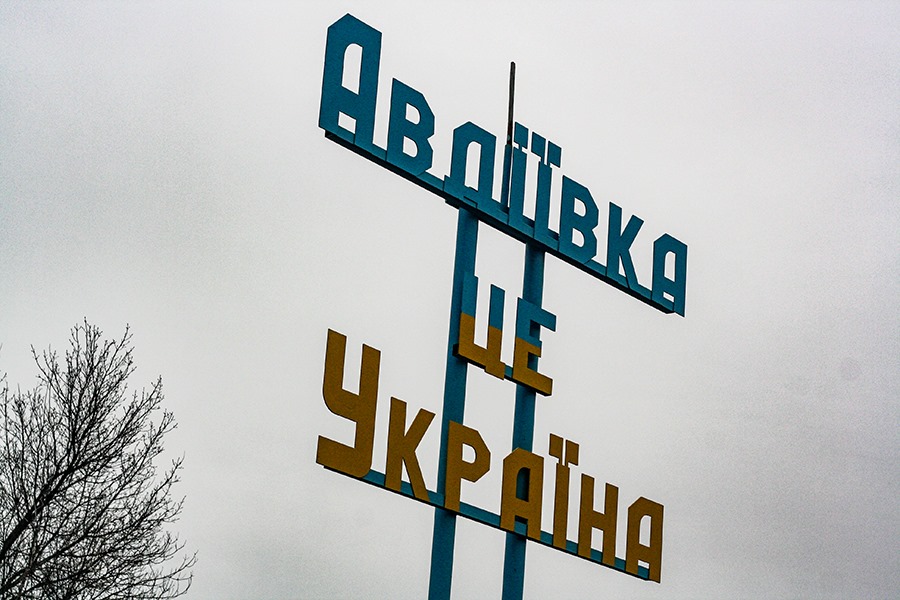
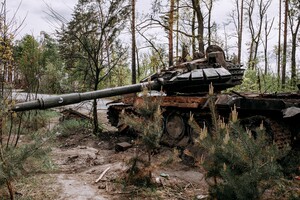
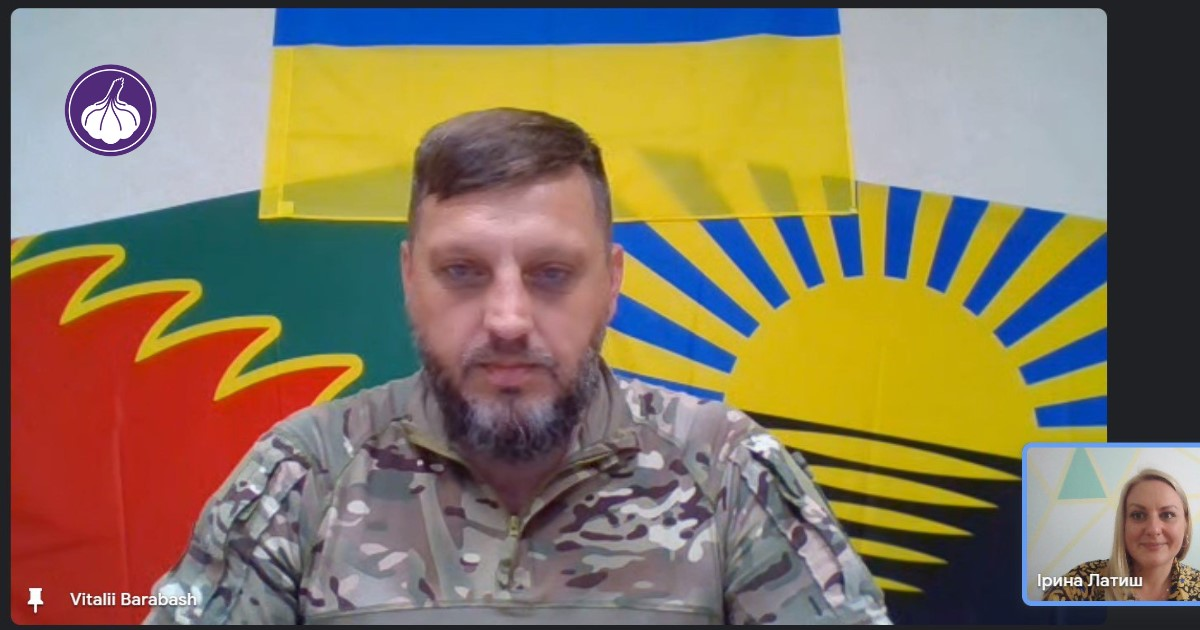


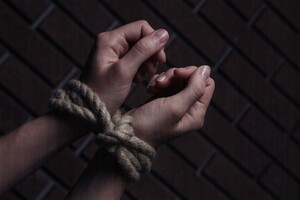
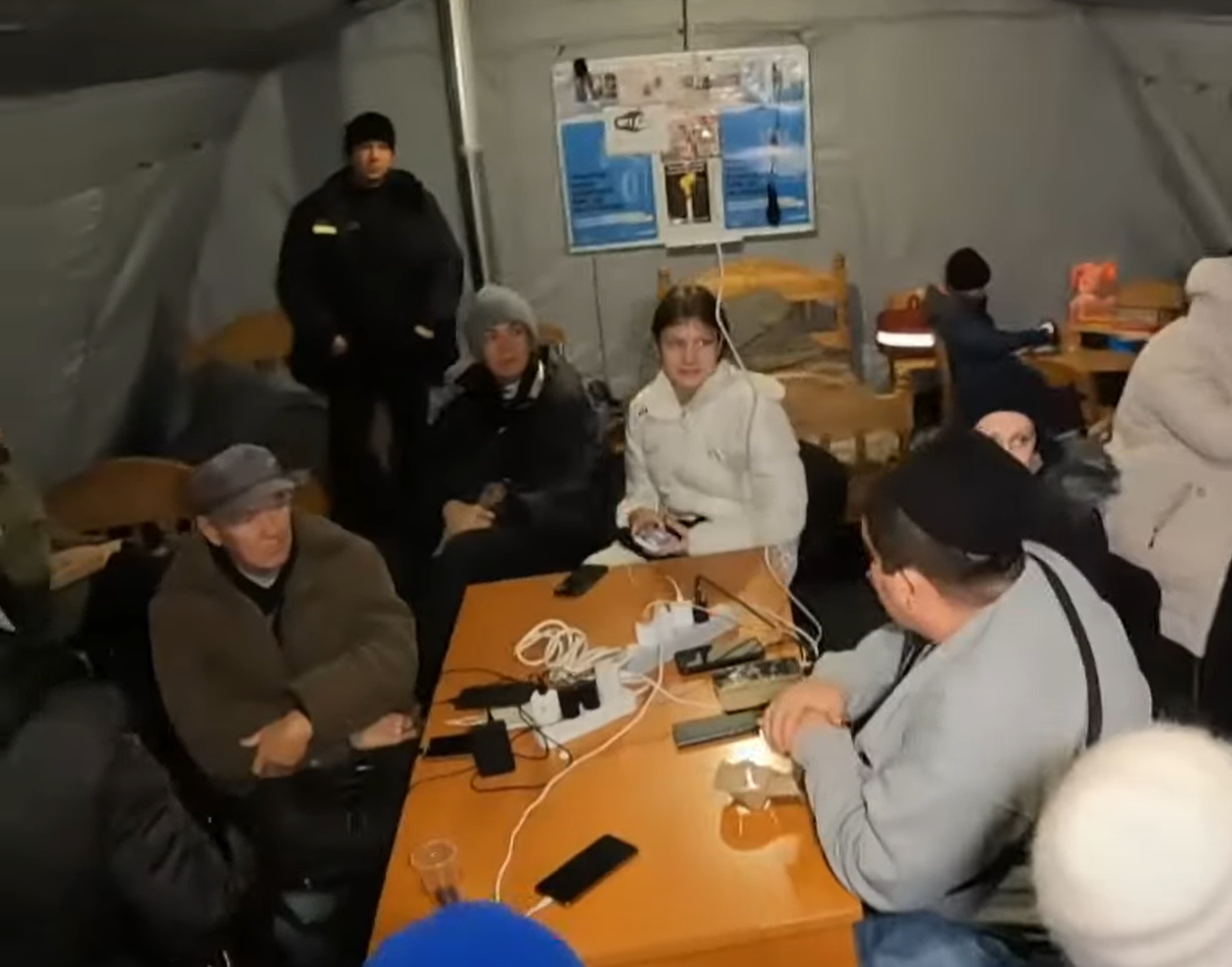
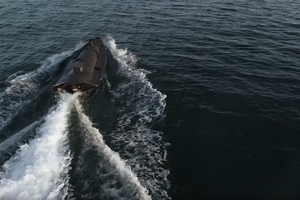

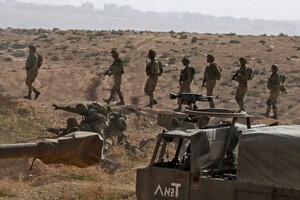
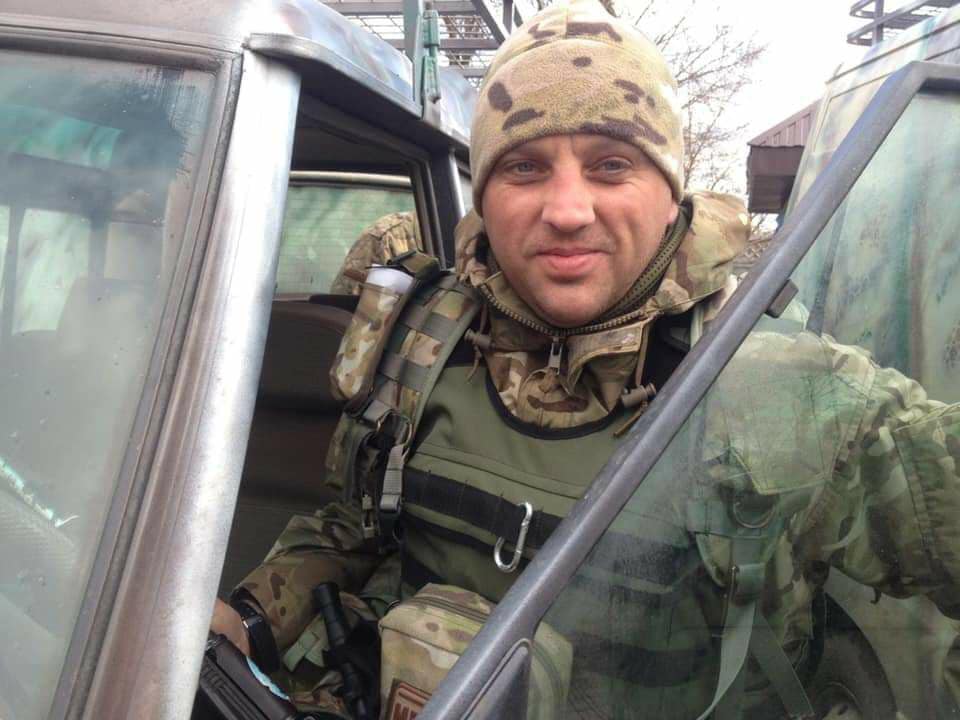
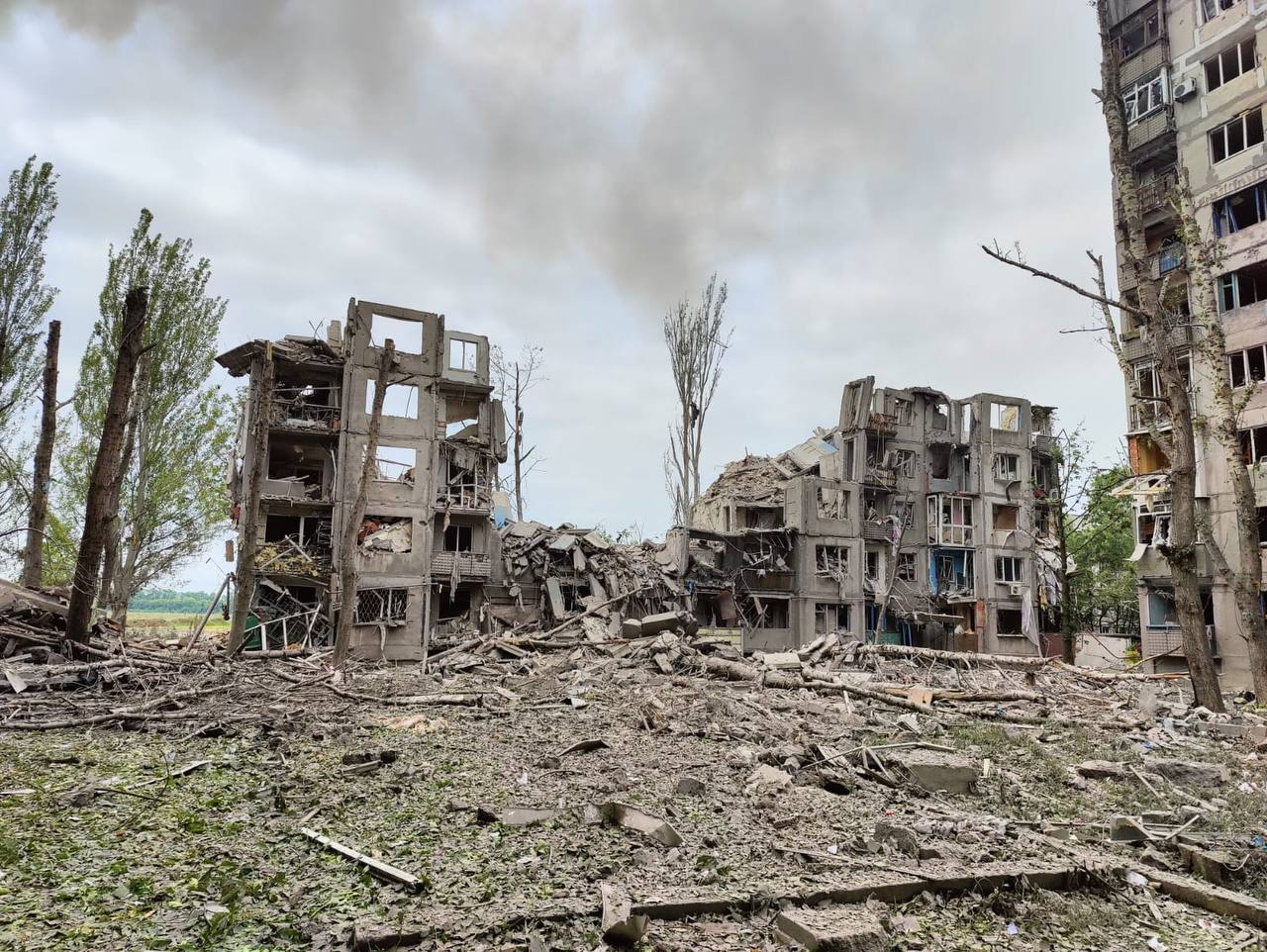


 Login with Google
Login with Google